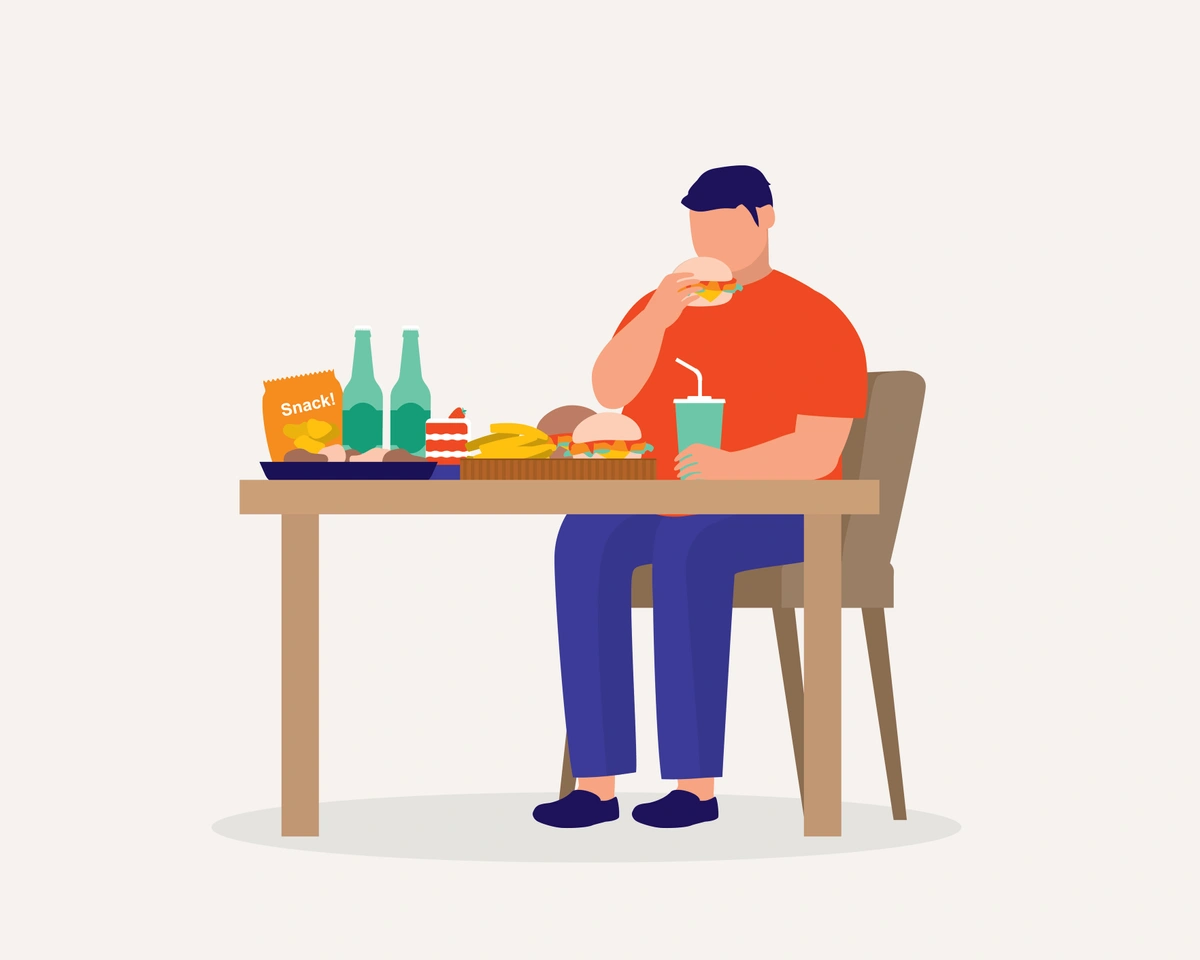Binge Eating Disorder

Binge-Eating Disorder
Binge Eating Disorder (BED) is the most common eating disorder in the United States. Individuals with BED generally have a history of dieting with failed attempts. BED is often characterized by sudden weight gain, hiding food, eating in secret, stealing food, and mood swings.
What it looks like
- Recurrent episodes of eating large quantities of food
- Food is often eaten very quickly & to the point of discomfort
- Feeling of loss of control during binge period
- Experiencing shame, distress, guilt afterward
- Not regularly using compensatory behaviors to counter the binge eating
- Binge eating occurs at least 1x/week for 3 months
- Mild to extreme: 1-3x/week to 14x/week
Individuals with BED often have co-occurring substance use disorders along with other compulsive/impulsive disorders. They also tend to struggle with depression, anxiety, and ADHD. In addition, many individuals with all types of eating disorders have experienced a form of trauma in their lives.
Who can develop an eating disorder?
A common myth is that eating disorders most affect young Caucasian girls. However, eating disorders do not discriminate among socioeconomic status, race, religion, age or even gender. An individual with an eating disorder could be one's next-door neighbor, one's co-worker, or even one's child. In addition, an elementary school student, adolescent, teen, young adult, middle-aged adult—or perhaps an aging parent.
- BED affects 3.5% of women, 2.0% of men and 1.6% of adolescents.
- 78% of those with BED experience daily life impairment and - 43.9% experience severe impairment
- Over 50% of LGBTQ individuals struggle with eating disorders
- A history of more than one Adverse Childhood Experience (ACE), is associated with a higher risk for eating disorders, substance use disorders, and depression and significantly affect African Americans, American Indian/Alaska Native and Hispanic individuals.
Having an eating disorder is no one's fault
Just like having blue eyes or brown hair, dimples or no dimples, people have no control over whether or not they develop an eating disorder. Some people believe that people who have an eating disorder are simply “choosing to binge eat,” however, the problem is far more complicated. People with eating disorders may consciously know that their behavior could hurt them, but knowing is only half the battle. Furthermore, eating disorders can sometimes stem from traumatic events, which can lead to the development of disordered behavior as a coping mechanism.
What causes eating disorders?
Eating disorders can be linked to the cultural environment, genetics, and/or triggers. The cultural environment includes social media, diet trends promoted as “healthy,” and society’s focus on physical appearance vs. inner worth. Family environment can also contribute to eating disorders including high expectations, perfection, lack of structure in the family, split family. Possible genetic components of eating disorders include biologic and innate brain chemistry, along with family history of depression, anxiety, eating disorders and/or substance abuse.
Medical complications
Eating disorders have the highest mortality rate of any mental illness and can affect every cell, tissue, and organ in the body. Although not all individuals with BED fall into the various classes of clinical obesity, those who do are at risk for type II diabetes, hypertension, heart disease, and gallbladder disease. In addition, many individuals with BED experience joint pain.
Outlook
Living with Binge Eating Disorder can present unique obstacles and finding the best treatment can take many attempts. However, early intervention, along with the proper treatment can dramatically improve one’s quality of life. Treatment for BED often involves a team of professionals working to improve the patient’s relationship with food while simultaneously encouraging them to not feel ashamed of themselves. If medical treatment isn’t contacted soon enough, a person may need immediate intervention due to cardiovascular complications. Although living with recurrent Binge Eating Disorder can present unique obstacles and finding the best treatment can take many attempts, with consistent effort and diligence, it is possible for someone who suffered from BED to live a perfectly healthy, normal life.